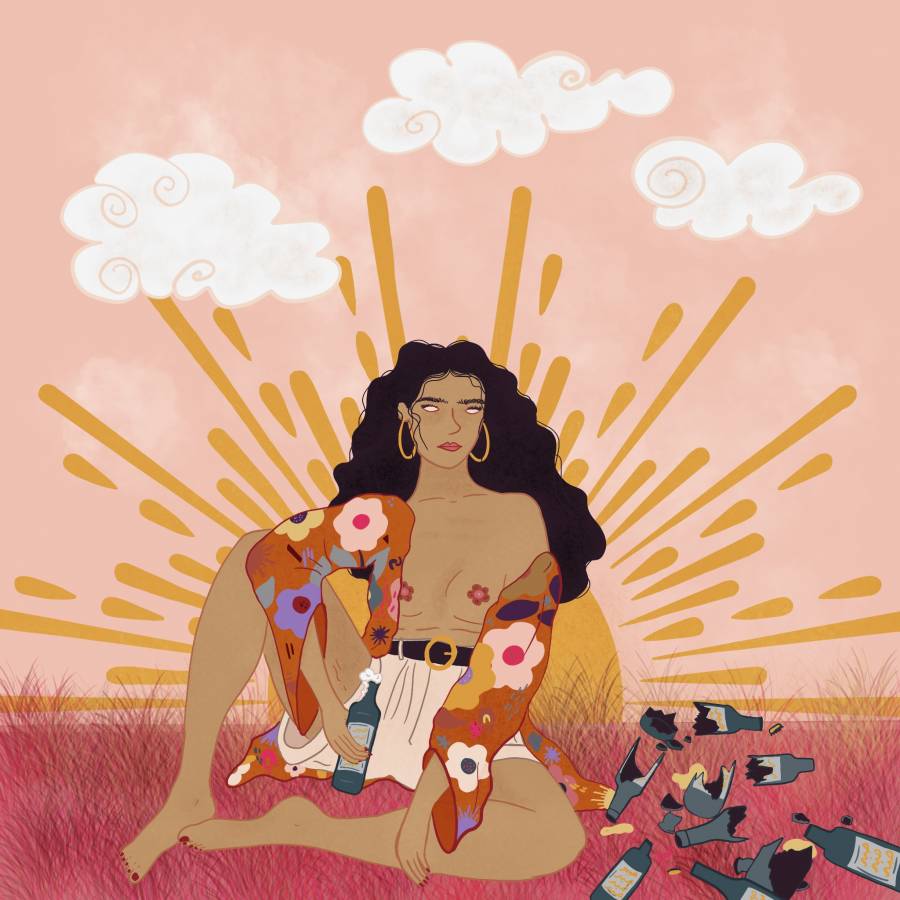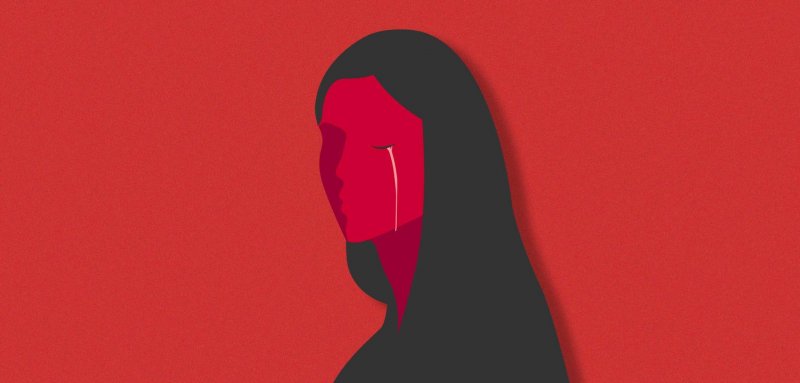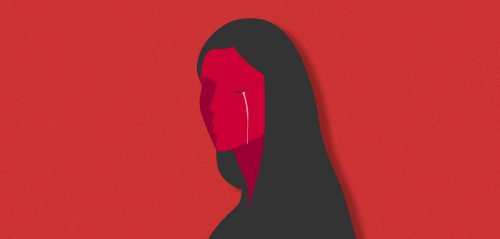Speaking about the systematic discrimination that only affects women is not some trend or path taken by those in pursuit of fame. Rather, these stories and experiences of women are nothing but proof of the continued existence of the historical cycles of discrimination. Women have both lost so much and defied so much in the daily fight against the misogyny epidemic - hating women solely for their gender.
Some women are optimistic about the changes that have imposed themselves as a result of having increased ownership of both land and voice in recent years, while the condition of others continued to deteriorate as injustices pour down upon them.
Between these two states, there remains renewed hope that the worsening conditions of women - in the past 18 months, Coronavirus tightened its grip on women’s spaces in their homes as well as behind screens - will provide the necessary visual to pave the way of no return to the old days.
But until then, many forms of misogyny are still alive and thriving.
A Black Bag... for Sanitary Pads and Chauvinist Comments
At a time when the figures from the Internal Security Forces (ISF) in Lebanon recorded a sharp increase in the number of complaints from victims of cyber sexual extortion between 2019 and 2020, reaching 754%, dozens of feminist platforms began to pop up one after the other. They emerged - especially on Instagram where the highest percentages of women and young groups are - with the aim of raising the voice against everything that harms women in the Arab world and with aim of spreading alternative knowledge that the norms of the patriarchal system have strived to keep hidden before things turned around thanks to the activism of a youth feminist group.
The “Zaafaran” platform by the young feminist designer Rand Hammoud, was one of the platforms born during lockdown. Rand, like dozens of young women in Lebanon, had decided to move from a closed and private account on Instagram to a public one, through which she aims to shed light on women’s issues in front of a wider audience.
From a distance, the process of passing from private to public may seem like an understandable and natural one to any individual wishing to contribute to a discussion. However, often this transition is not light and simple if the one transiting to public is a woman. Rand had expected that her move would be accompanied by criticism and opinions that were contrary to her expressions and perhaps even hurtful ones too - something female activists have become accustomed to - but not to the extent she has witnessed of late.
“I do not check Zaafaran’s Instagram page in the morning,” Rand whispers. “I know if I open the page, I’ll read comments that will upset me. It is easy to tell ourselves that our day will not be affected by comments. But they are comments that always remind us of the reality we live in and sometimes forget due to the smaller circles that we belong to.”
Rand goes on to say, “While I was thinking during the lockdown of how I could use my simple abilities - such as my art - to communicate an idea that I see as common sense, there was a person also sitting in his house, but the difference is that, out of his quarantine, he saw a new opportunity to control the spaces of women, including the Internet.. It’s as if he and I were living in two different but parallel worlds.”
One of Rand’s adventures began with a memory she posted detailing the story of the menstrual cycle and the infamous black plastic bag.
Rand was only 12 years old when the owner of the local neighborhood store placed a pack of “Always” sanitary pads inside a black plastic bag, separating it from the rest of the items as if separating the abnormal from the normal. “As a 12-year-old girl who went for the first time on her own to buy Always for herself, the man made me feel like I should be ashamed about it,” Rand explains.
Rand outlined this incident, which millions of women experience at least once in their lives, in simple drawings and designs that she posted on Instagram to allow women and girls to discuss their feelings about menstruation and their relationships with their bodies. She also meant it to be a way to establish the act of dealing with menstruation and other physical, physiological and sexual issues in a natural and smooth manner.
She was in no way looking forward to open a discussion about what was halal and haram, for instance, or modesty and bashfulness, or the necessity of avoiding the ‘danger’ of exposing the fact that the woman isn’t fasting during the month of Ramadan due to her period. She was even accused of shamelessness and was called on to hide her secret inside a black bag, which, according to the claims of one commentator, follows the example of the Prophet who once expressed his shyness to talk about menstruation in front of women.
What Rand is exposed to on a daily basis is similar to the stories of thousands of women today seeking to put their intimate and non-intimate issues on the table. Those who are resentful of women-related content not only satisfy themselves with writing negative or hurtful comments, but they also seek to find out the identity of the owner of the post or page. They would then attack her private inbox, and threaten her with removing her page, stealing it, as well as going after her personally - in what can be placed within the framework of “cyber misogyny”.
In this context, Rand says that what she had not expected “was that free expression would be so costly.” Expression, in her opinion, “is normal and the things I express should also be very natural, but then we are surprised by the real world telling us that this is not the current reality... Some people go as far as to express their feelings of hatred to an extent that allows them to insult you, steal your page, and harm you.”
She adds that, “It is the right of a person to not want to see any feminist content, and he can refrain from seeing it. But we are seeing how some seek out this content in order to insult, threaten, and appropriate or take over this space, knowing that the owners of this space themselves are not trying to seize or take over their space. The reason for such behavior is misogyny. It is the patriarchal system that is lying in wait for us. It is the people’s non-acceptance of the change that is happening and them holding on to the control and domination of women, even on the internet.”
Rand was only 12 when the owner of the local store placed a pack of Always sanitary pads in a black plastic bag, separating it from the rest of the items as if he was separating the abnormal from the normal. “He made me feel I should be ashamed”
Most of the women we spoke to choose not to respond to hurtful and offensive comments, often reacting to objections as an opportunity to explain an idea and convince or persuade others of their point of view.
Once, Rand was compelled to report and follow up with Instagram when her page was hacked, and again with Facebook when she received a photo in her private message box from an unknown account. The photo, at first glance, suggests that it was of Mickey Mouse, but Rand saw that the illustration included the presence of male genitalia, so she notified Facebook. The platform’s response was that this image and others like it do not violate or go against Facebook’s policies.
In her opinion, they only saw Mickey Mouse, but she saw other pornographic images with sexual connotations from the same account encroaching upon her space.
In contrast, Rand drew an illustration in which she showed part of a woman’s nipple. Without delay, Instagram (which follows the same publishing policies of Facebook) prohibited any sort of promotion and repost of the image, on the grounds that it goes against its publishing and Community Standards.

This simple example is enough to define the mentality that governs the “standards” of internet giants: an image of the female nipple is forbidden, while images with sexual connotations sent to private inboxes are allowed.
The image of the nipple was not the only incident. Several other photos on Zaafaran were banned from ‘paid promotion’ by Instagram.

Sexual Harassment: Criminalized in Texts, but...
What happened with the artist Rand Hammoud happens frequently with hundreds of women, and in some cases, women tell of situations that had been even more hostile and violent towards their person and more dangerous to their private spaces.
The latest widespread debate on the issue of harassment came during the month of May 2021, after female actresses, artists, and journalists shared their experiences with journalist Jaafar al-Attar. They wrote on social media that he was luring them with promises to show them theatre and drama scripts so that they would agree to meet him. They recount how he pressured some of them to have sex with him, and went on to pursue others online with increasing persistence, despite them having ignored or rejected him.
The stories of the female speakers showed a very similar pattern in most of their accounts, repeatedly stating, for example, how the offender frequently used similar arguments, such as the “hashish” (weed) he smoked to justify his condemned behavior.
Journalist Luna Safwan, one of the women who shared their experience with the same man, talks to Raseef22 about the case, and explains that until now, nearly three months after filing an official complaint against him, “there have been no new judicial developments in the case, except for issuing an arrest warrant against the accused which did not lead to any results, and no official body has contacted the plaintiffs until now.”
Despite this, Luna considers that the Law to “Criminalize Sexual Harassment and [for] Rehabilitation of Its Victims”, which was passed in December 2020, has changed the current equation and power relations between women and those accused of harassing them. Luna tells how each of the other survivors strengthened one another when they joined forces and came together in one support circle, intending to file a case against a single offender.
“It's the right of any person not to see feminist content. But some are seeking out this content in order to insult, threaten, and appropriate this space, even though the owners of this space themselves are not trying to take over others' space”
After a Lebanese representative shared the first online testimony against the accused, others began pouring one after the other on social media, which prompted the female speakers to contact each other. Many of them met together to exchange their shared experiences and consider the next steps, with eight of them eventually deciding to file a lawsuit against the same man.
Today, there are two paths that may be taken, Luna clarifies, “The first path is the one that the Public Prosecution initiated, carrying out an investigation and recording the victims’ testimonies, in which the Hobeish office has not led to any result until now. As for the second path, it has to do with a lawsuit filed by the Syndicate of Professional Artists in Lebanon - which moved to not only confront the act of harassment, but also the act of impersonating an artist with the aim of luring girls - via the syndicate’s lawyer, Mr. Joseph Ghanem.”
In return, the accused responded to these developments by threatening to file slander and defamation lawsuits and “fabricating a case” against every woman accusing him of harassment. Safwan believes that this step is nothing more than “another attempt to silence and intimidate women so that others would not dare speak out or file complaints.”
In conclusion, it has become clear that this case is the first lawsuit that a group of people within one support group have brought to the judiciary on the basis of the new law. And it is the first real test of how institutions deal with the issue of harassment in accordance with this law.
Jurists have criticized some of the glaring loopholes in this law, most notably keeping “the high burden of proof on the survivors”, holding on to some definitions of a moral nature, and “a lack of effective gender-sensitive investigations.” They however encouraged those concerned to rely on the new law in order to take advantage of its positive aspects, foremost of which is its inclusion of a wide range of the forms of harassment.
The law states that “sexual harassment is carried out through speech, actions, and electronic means.” It also considers sexual harassment as “every single act or endeavor, that uses any kind of psychological, moral, financial or racist pressure” and actually aims “to obtain benefits of a sexual nature.”
The law criminalizing harassment had not yet been passed when dozens of young women shared their experiences, with unions to which those accused of sexual harassment belong to, moving to support them, even if just through statements. The aforementioned case is the first where the plaintiffs witnessed a union movement that was somewhat supportive of the women for a change.
The Lebanese Press Photographers Syndicate, for example, did not bat an eye following the spread of online testimonies against photographers, while both the Lebanese Press and Editors’ Syndicates continue to ignore statements addressing harassment and discrimination made by female journalists from time to time. We have seen the head of the Press Syndicate Aouni al-Kaaki making misogynistic statements when he said, “This woman (Judge Ghada Aoun) is unmarried and must be suffering from poor health and several illnesses.”
Observers hope that the new law will help discourage potential harassers from attempting to engage in their crimes, especially if it is implemented in a way that prioritizes the protection of survivors and delivers justice for them.
But the fundamental question remains: Can this take place in an environment where misogynistic statements still come out from the top of the pyramid? It hasn’t been long, for instance, since an extremely shocking remark was made by Deputy Speaker of Parliament MP Elie Ferzli to the Minister of Justice Marie-Claude Najm. Ferzli had said, “Remove it from the top and put it in the bottom,” then laughed after she had requested that a sentence be removed “from the top” of an article of law under study.
“You Don’t Cook, Nadine?”... A Question a Judge Reprimanded a Wife with After She’d Been Tortured
If the internet is a vast place that accommodates for contradictory spaces and allows for the negotiation of power as well as the ability to crystallize and formulate a discourse, then a home is still a narrow space - that is, if it even provides women with space at all. There are a few bargaining weapons whose value has fallen due to the lockdown and the repeated suspension of the judiciary’s work due to the spread of Covid-19 - and perhaps soon due to the fuel scarcity crisis - including the work of personal status courts, which manage, in accordance with 15 factional and sectarian laws, the affairs of marriage, alimony, divorce, child custody and guardianship.
While residents of Lebanon are deprived of a unified civil personal status law or code, religious personal status laws are also absent from amendments that could have facilitated the lives of some women in the time between the phase of unified lawlessness and the phase of the unified law.
Thousands of pages have been devoted for decades to explain the scourge of sectarian personal status laws and religious court practices that discriminate against women, and between women at all levels, without the consciences of the legislators being affected or moved in any way.
At a time when Dar Al-Fatwa decided to raise the age of a mother’s custody of her children to 12 years in 2011, and prevented the marriage of all under the age of 15 in late 2020, the Catholic sect still relied on the age of infancy (breastfeeding) as the official age of custody for the mother in its texts. Meanwhile, the age of custody for the Greek Orthodox is at 14 years of age for males and ay 15 years for females, while for Shiites it is two years for a boy and seven for a girl.
Therefore, there are many differences between sectarian authorities in terms of their rulings in matters of the state, guardianship and custody. With it, the ceilings of women’s rights vary according to their religious authority, in order to keep them stuck in a stressful cycle that keeps them captive to the interests of their sectarian and political leaders and their patriarchal interests.
To correct this injustice, for decades, dozens of human rights and trade union movements have struggled to reach a unified civil law that applies to all residents of Lebanon. They were led by women’s movements, given that women, here as well, make up the group most affected by the texts and procedures put in place in response to a patriarchal mentality that is confused by the concepts of partnership and the fair distribution of roles and tasks, instead of a stereotypical distribution.
The men of the state and its sectarian factions listen daily to women as they reluctantly recount stories of the endless injustices that they are subjected to, with most having no other choice but to resort to forced guile in order to survive, or compulsive patience in order to carry on.
The story of “Nadine” (pseudonym), a mother of two, embodies all the horrors that the mind cannot imagine and the cruelty that the heart cannot fathom. Even so, Nadine has still not been officially granted a divorce by the (Christian) court as of the time of this article.
Anyone who visits Nadine will see an educated, strong and liberated woman with uncontained energy and ambitions. They certainly will not see the woman who was tortured by her husband the type of torture that dictatorial regimes inflict upon their people. Over the course of 14 years, she tasted the bitterness of isolation, rejection, insult, humiliation, degradation, and routine blame for her husband’s failures in almost everything he did. He has called her a “whore” in front of her children and their young friends, monitoring her every move on a regular basis, preventing her from taking care of her body the way she likes, imposing his tastes on the shape of her body, along with other harmful behaviors.
“My body was not my own,” says Nadine. “He forbade me from socializing, being part of the simplest activities, and even from visiting a therapist,” but the young woman who had studied psychology in university was able to keep the visits that saved her a secret, and today she is treating othersin turn.
Nadine tells how her husband filled her spaces with recorders and tracked her movements. He would watch porn and re-enact the scenes on her body. Even these pornographic simulations were often limited to the times when he wanted to have her bear his children in order to preserve his bloodline, and not as some expression of love or desire for his wife.
After only one week of getting married, Nadine asked herself, “Nadine, what have you done?” Even the honeymoon was a month of indolence, as the husband spent it sleeping, neither interacting with his bride nor approaching her.
"My body was not mine” says Nadine. Her husband watched porn and re-enact the scenes. Even these pornographic simulations were often limited to the times he wanted kids in order to preserve his bloodline, and not as some expression of love or desire
The “ominous” honeymoon was followed by an arduous journey, marked by the husband’s long-term addiction to alcohol and an even more dangerous addiction to the profound pleasure he derived from torturing his wife and seeing her beaten down, weary, submissive and obedient all at the same time. For instance, he would make her drive the car for long hours at night so that he could sit next to her without having to drive and drink whiskey in peace, while her eyes could barely see from fatigue following a long day working outside the house and inside with her children. He would later kick her out of their bed if he saw her relax even for a little. This ‘habit’ of his went on for years.
One night, he threw her out of the house because he didn’t like that she went to see her friends and came back at 9pm. He would change her curfew time every night, even though the couple was practically separated. He would punish her for not respecting the new time that he had set in his head even though he hadn’t informed her of it. He even went so far as to threaten her with death.
Nadine tells Raseef22, “He used to tell me, ‘I dream of shooting you, but I’d rather see you paralyzed in a wheelchair and suffering like you’ve made me suffer’. In some cases, it felt as if my heartbeat would beat out of my eyes.”
Nadine also recounts how her ex-husband attacked her relatives when she and the children turned to them after the attempts of “reconciliation” that she led for years failed. Despite being the one who was oppressed, she insisted on supporting him psychologically and kept trying to restore her relationship with him because she was committed to taking care of the family, or rather, because he made her lose everything, including her self-confidence and ability to exist anywhere else outside of his control.
She says that last year, the judicial system did not see any reason to grant her a protective or restraining order that would keep their abuser away, despite the existence of the Domestic Violence Law No. 293 of 2014, which was amended in 2020 to provide greater facilities to women seeking protection along with their children, criminalizing the moral and economic violence towards them even more clearly. No bruising or blue marks were apparent on her face, and without those, it seems there was no serious justification for protection.
In September 2019, Nadine officially asked for separation from her husband, and the husband saw this as a golden opportunity... to destroy her. “I will burn you and break you,” he told her.
Thousands of women were forced to stay in their homes with their abusers during the Covid-19 lockdown period, which recorded an increase in domestic violence cases with rates officially reaching 100%. A sharp increase in the number of murders of women was also recorded, rising from 13 crimes in 2019 to 27 in 2020, while nine cases were recorded between January and July of 2021, according to figures by activist Alia Awada to Raseef22, one of the Managing Editors of the “Sharika wa Laken” feminist website, which periodically monitors cases of homicide of women inside and outside the family.
Unlike many women who had to quarantine and confine themselves with their abusers, Nadine decided to move to a new home, taking her children with her and keeping the address secret. She was fully aware that her “sadistic husband, incapable of empathy” would not be able to take care of the children. And she was right. It was barely hours after she had taken them to his house when she tested positive for Covid before he brought them back to her because, according to her, he was afraid of them.
We list all of the above in detail to express the peak of the discrimination issued not only by the civil judicial authorities - which did not grant Nadine a strongly-worded protective order, limiting themselves with a pledge from the offender to steer clear of her - but also from the religious authority that will soon decide on her case, that is, the fate of her life.
When she filed for separation, she did not get an acceptance until eight months had passed. After she recounted the cycle of torture, humiliation and infidelty she was subjected to before the Maronite spiritual judge in the Jounieh region, he only responded to one detail that her husband had mentioned against her. He said to her in a reprimanding tone, “Nadine, any man can be subjected to experiment (cheat)... But how can it be that you’re a woman that doesn’t cook? My child, even if you work, when you come home, you must cook.”
On Care Work and “Soft Discrimination”
While Nadine and thousands of women wait for decisions of divorce, marriage annulment, or child support - which are still set by the courts at 300,000 LBP to this day despite the major decline in the Lebanese currency exchange rate and the deterioration of living conditions - Rama Abu al-Ainayn, a mother of a young girl, is experiencing what can be described as “soft discrimination”.

In the past two years, feminist activists and researchers have seized the opportunity created by the lockdown to shed more light on the burdens placed on women and the uneven distribution of domestic duties and caring responsibilities. Unpaid care work - along with the fact that it should be recognized and appreciated - has become major headings on the feminist political agenda, especially after the executive and legislative authorities did not give it the importance it deserves for decades. In addition, its value was not originally accounted for in national economies or in personal status laws, especially those related to the distribution of wealth and the compensation that arise from the separation of spouses.
Both Rama and her partner care for their two-year-old daughter, Alma. Rama works from the office and her partner often works from home.
“My partner and I are a rare case perhaps. I used to feel guilty at times because I was the one working outside the house and he was the one working from home. I was the one returning home from the outside, to my daughter. I was in such a hurry to finish my work and get back to them. Maybe I shouldn’t feel guilty, for I am in my office working, and I cannot even work from home with Alma there because I’m in financial management and I need peace and quiet to be able to focus.”
Rama describes her work when it comes to preparing food, bathing Alma, and putting her to sleep as “natural”. She finds herself involved in the act without having necessarily planned it. “It is difficult for me to ask others to do these things if I am at home and not busy with something, even though they are tasks that can be shared or divided.”
Rama describes to Raseef22 an inherent and implicit feeling of “negligence” or underperformance if she doesn’t undertake all these nurturing and caring duties, “I automatically feel guilty, those feelings stay there, I don’t know why.”
If Rama’s daughter had been at school, she might have added a list of other tasks to her responsibilities such as teaching, driving her, picking her up, and sorting out the logistics. And if one of her sick relatives lived with her, she would have had to take care of him, like with the millions of mothers around the world who quickly stepped up to support those around them, either spontaneously or as a result of societal expectations, or even the partner’s lack of action. This had prompted human rights defenders to sound the alarm of the dangers of the pandemic re-establishing the stereotyped roles that humanity had been slowly moving past thanks to decades of labour workers’ and feminist struggle.
In this context, a study published in early 2021 by social psychologists at the University of California - Los Angeles (UCLA) indicates that “theories of social and evolutionary psychology show that the feeling of uncertainty and lack of safety resulting from COVID-19 may pose a threat, especially when combined with the risk of infectious diseases and existential fears - and this may cause people to become more traditional and socially conservative.”
Moreover, the International Labour Organization (ILO) stated that “women workers have been disproportionately affected by the pandemic more than others,” because the “severe impact of COVID-19 on women workers relates to their over-representation in some of the economic sectors worst affected by the crisis, such as accommodation, food, sales and manufacturing,” with women and all low-wage workers bearing the brunt of the widening the “gap between the top earners and the low-wage workers.”
What Does All this Mean for Feminist Efforts?
Feminist activist and Interim Director of the Asfari Institute for Civil Society and Citizenship at the American University of Beirut, Lina Abou Habib (@LinaAH), commented to Raseef22 on these developments. She states that “for a hundred years, feminists have been seeking to establish the idea that violence against women is a cause, that domestic and care work is a cause, that the issue of hierarchy within the family is a cause, and the fact that the work of women outside the home has not altered the distribution of work inside the home, is a cause... It took a pandemic for the world to notice all this!”
Habib added that, “The Covid-19 pandemic provided a valuable opportunity for women rights activists, represented by their ability to draw the attention of society to these old issues, which have emerged and become clearer due to the lockdown and the accompanying doubled domestic burdens. It has drawn attention to the difficulty of domestic work in general, the issue of failing to appreciate it, and to the problem of inequality pre-Covid, which was exacerbated by the pandemic or, at the very least, helped to manifest it.”
“Covid-19 did not reveal anything new, but rather pulled back the curtain off concepts and issues that feminists were already fighting for,” she says to Raseef22, and goes on to confidently reassure, “Today there is abundant data regarding the gender-differentiated effects of this pandemic. Therefore, we are not going to explain it further. And whoever wants to understand it should just search for himself among the resources that feminists have provided. If that means anything, then there is no going back following this leap.”
The struggle for the recognition of domestic work may follow a path similar to that taken by the struggle for the recognition of violence against women in Lebanon or the act of forcefully removing children from the arms of their mothers in application of unjust laws and oppressive customs.
On the road for the struggle to end violence against women, it took bloodshed of hundreds of women for the world to believe that women are in danger. As for the struggle to properly recognize, appreciate, and fairly distribute household duties, it took a worldwide pandemic for the world to believe that women are, at present, enslaved.
Raseef22 is a not for profit entity. Our focus is on quality journalism. Every contribution to the NasRaseef membership goes directly towards journalism production. We stand independent, not accepting corporate sponsorships, sponsored content or political funding.
Support our mission to keep Raseef22 available to all readers by clicking here!
Interested in writing with us? Check our pitch process here!









